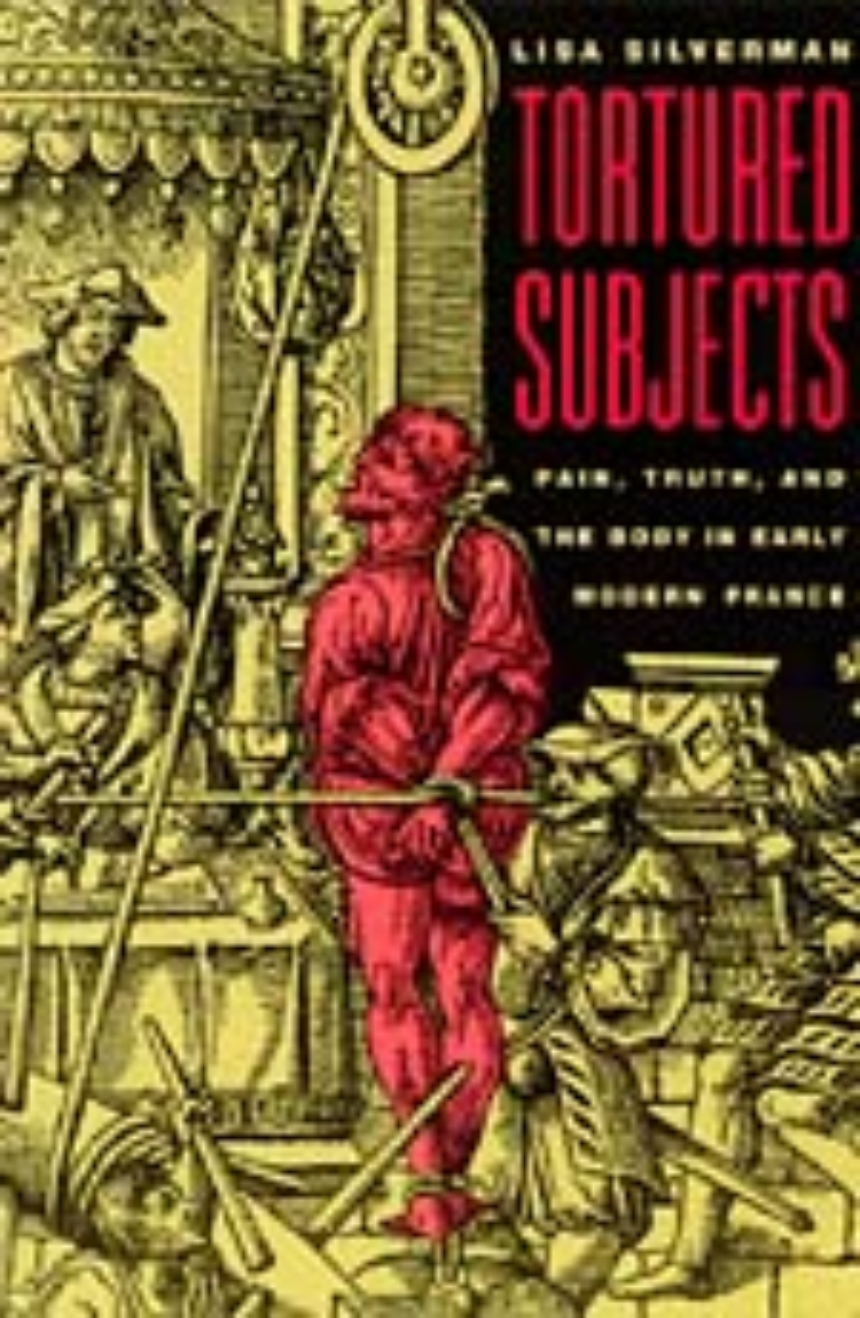Tortured Subjects
Pain, Truth, and the Body in Early Modern France
9780226757544
9780226757537
9780226757520
Tortured Subjects
Pain, Truth, and the Body in Early Modern France
At one time in Europe, there was a point to pain: physical suffering could be a path to redemption. This religious notion suggested that truth was lodged in the body and could be achieved through torture. In Tortured Subjects, Lisa Silverman tells the haunting story of how this idea became a fixed part of the French legal system during the early modern period.
Looking closely at the theory and practice of judicial torture in France from 1600 to 1788, the year in which it was formally abolished, Silverman revisits dossiers compiled in criminal cases, including transcripts of interrogations conducted under torture, as well as the writings of physicians and surgeons concerned with the problem of pain, records of religious confraternities, diaries and letters of witnesses to public executions, and the writings of torture’s abolitionists and apologists. She contends that torture was at the center of an epistemological crisis that forced French jurists and intellectuals to reconsider the relationship between coercion and sincerity, or between free will and evidence. As the philosophical consensus on which torture rested broke down, and definitions of truth and pain shifted, so too did the foundation of torture, until by the eighteenth century, it became an indefensible practice.
Looking closely at the theory and practice of judicial torture in France from 1600 to 1788, the year in which it was formally abolished, Silverman revisits dossiers compiled in criminal cases, including transcripts of interrogations conducted under torture, as well as the writings of physicians and surgeons concerned with the problem of pain, records of religious confraternities, diaries and letters of witnesses to public executions, and the writings of torture’s abolitionists and apologists. She contends that torture was at the center of an epistemological crisis that forced French jurists and intellectuals to reconsider the relationship between coercion and sincerity, or between free will and evidence. As the philosophical consensus on which torture rested broke down, and definitions of truth and pain shifted, so too did the foundation of torture, until by the eighteenth century, it became an indefensible practice.
296 pages | 8 halftones, 1 table | 6 x 9 | © 2001
Culture Studies:
History: History of Ideas
Law and Legal Studies: Legal History
Literature and Literary Criticism: Romance Languages
Table of Contents
List of Illustrations
Preface
A Note on Foreign Terms
Introduction
Part One: An Epistemology of Pain
1. Murder in the rue Noue: The Trials of Jean Bourdil and the Legal System of Old Regime France
2. "If he trembles, if he weeps, or sighs . . .": Judges, Legal Manuals, and the Theory of Torture
3. "To know the truth from his mouth": The Practice of Torture in the Parlement of Toulouse, 1600-1788
Part Two: Pain, Truth, and the Body
4. "The executioner of his own life": Lay Piety and the Valorization of Pain
5. "The tortu’d patient": Pain, Surgery, and Suffering
6. ". . . as if pain could draw the truth from a suffering wretch": Pain as Politics
Epilogue
Appendix
Notes
Bibliography
Index
Preface
A Note on Foreign Terms
Introduction
Part One: An Epistemology of Pain
1. Murder in the rue Noue: The Trials of Jean Bourdil and the Legal System of Old Regime France
2. "If he trembles, if he weeps, or sighs . . .": Judges, Legal Manuals, and the Theory of Torture
3. "To know the truth from his mouth": The Practice of Torture in the Parlement of Toulouse, 1600-1788
Part Two: Pain, Truth, and the Body
4. "The executioner of his own life": Lay Piety and the Valorization of Pain
5. "The tortu’d patient": Pain, Surgery, and Suffering
6. ". . . as if pain could draw the truth from a suffering wretch": Pain as Politics
Epilogue
Appendix
Notes
Bibliography
Index
